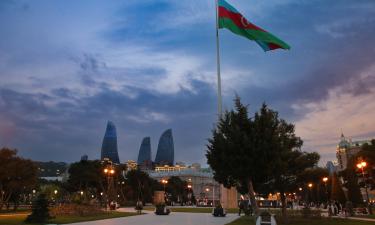Failures of International Law and The Security Council's Tyranny (Part III)
…continued.

The Security Council and Power of Veto
The United Nations Security Council power of veto is frequently cited as a major probl em with the UN. Key arguments include that the five permanent members (the US, the UK, Russia, China and France) no longer represent the most stable and responsible member states in the United Nations and that their veto power slows down and even prevents important decisions being made on matters of international peace and security.
For example, the Security Council passed no resolutions on most major Cold War conflicts, including the Soviet invasion of Czechoslovakia and Afghanistan, and the Vietnam War, among others. Resolutions addressing more current problems, failed also, such as the conflict between Israel and the Palestinians, the US invasion of Iraq and Afghanistan, South Ossetia War. There has been a constant cause of friction between the General Assembly and the Security Council, as almost all of the wars was not endorsed by the UN.
Nonetheless, the current Security Council power of veto is irrelevant. With the General Assembly's adoption of the Uniting for Peace resolution 337A in 1950, it was made clear by the UN Member states that:
Resolves that if the Security Council, because of lack of unanimity of the permanent members, fails to exercise its primary responsibility for the maintenance of international peace and security in any case where there appears to be a threat to the peace, breach of the peace, or act of aggression, the General Assembly shall consider the matter immediately with a view to making appropriate recommendations to Members for collective measures, including in the case of a breach of the peace or act of aggression the use of armed force when necessary, to maintain or restore international peace and security.
In fact, on the other hand, this resolution looks irrelevant, since it was not used to maintain international peace and security when Security Council failed.
The United Nations was set to be a democratic organization, to represent all nations equally, however, today, after 63 years of existence, the UN has not changed, and continues to represents the interests of the governments of the nations who form it and not the individuals within those nations.
Knownig that the five permanent members of the Security Council, who are all nuclear powers, have created an exclusive nuclear club whose powers are unchecked, the General Assembly (which has true international representation) with all its members can easily withdraw from the UN.
It is very straightforward, why should members of the General Assembly or better to say members of the UN pay annual fees of millions of Dollars to the UN when they have no rights, they are not even protected from any military aggression by another member state, as was seen in the past. It was, also, reported that the US, a permanent member of the Security Council seriously thinking to withdraw from the UN. In addition to withdrawal, there were some proposals to expel the United Nations Headquarters from the US territory and the City of New York.
The International Court of Justice
If we look at the International Court of Justice (ICJ), there is not much to say. The Court decides in accordance with international treaties and conventions in force, international custom, and the general principles of law and, as subsidiary means, judicial decisions and the teachings of the most highly qualified publicists.
Generally, the Court has been most successful resolving border delineation and the use of oceans and waterways. While the Court has, in some instances, resolved claims by one State espoused on behalf of its nationals, the Court has generally refrained from hearing contentious cases that are political in nature, due in part to its lack of enforcement mechanism and its lack of compulsory jurisdiction. The Court has generally found it did not have jurisdiction to hear cases involving the use of force.
In relation to the UN Charter XIV, Article 94 of the UN Charter, there are some obvious problems; if the judgment is against one of the five permanent members of the Security Council or its allies, any resolution on enforcement would then be vetoed. This occurred, for example, after the Nicaragua case (Case Concerning Military and Paramilitary Activities in and against Nicaragua (Nicaragua vs. the US)), when Nicaragua brought the issue of the US's non-compliance with the Court's decision before the Security Council. Furthermore, if the Security Council refuses to enforce a judgment against any other state, there is no method of forcing the state to comply.
In practice, the Court's powers have been limited by the unwillingness of the losing party to abide by the Court's ruling, and by the Security Council's unwillingness to impose consequences. Simply, the ICJ does not enjoy a full separation of force, with permanent members of the Security Council being able to veto enforcement of even cases to which they consented in advance to be bound.
The International Criminal Court
Relating to the International Criminal Court (ICC), as of 2002, the Office of the Prosecutor had received around 2800 so called "communications" about alleged crimes in at least 139 countries. After initial review, however, the vast majority of these communications were dismissed as obviously outside the jurisdiction of the Court. As of August 2008, the International Criminal Court has launched investigations into just four situations: Northern Uganda, the Democratic Republic of the Congo, the Central African Republic and Darfur (Sudan). Several other situations have been subject to intensive analysis, including Afghanistan, Chad, Colombia, Cote d'Ivoire, Georgia and Kenya.
The Office of the Prosecutor had received around 240 communications in connection with the US led invasion of Iraq in 2003, which alleged that various war crimes had been committed; none of these allegations had survived.
The UK, Australia, and Poland (countries that invaded Iraq with the US) are all state parties to the Rome Statute which established the International Criminal Court (ICC) and therefore their nationals are liable to prosecution by the court for the violation of any relevant international criminal laws. Because the United States is not a state party, the US nationals cannot be prosecuted by the court (except for crimes that take place in the territory of a state that has accepted the court's jurisdiction, or situations that are referred to the court by the United Nations Security Council, where the US has a power of veto).
In July 2002, the United States threatened to use its Security Council veto to block renewal of the mandates of several United Nations peacekeeping operations, unless the Security Council agreed to permanently exempt US nationals from the Court's jurisdiction.
A resolution to exempt citizens of the United States from jurisdiction of the ICC was renewed in 2003 by the Security Council Resolution 1487. However, the Security Council refused to renew the exemption again in 2004, after pictures emerged of US troops torturing and abusing Iraqi prisoners in Abu Ghraib. Shortly, the US withdrew its demand.
As part of the US campaign to exclude its citizens and military personnel from extradition to the ICC, the President Bush administration has been approaching countries around the world seeking to conclude Bilateral Immunity Agreements, or "Article 98" agreements. So far hundred countries have ratified this agreement. Countries that have ratified the Rome Statute and signed Article 98 breached their obligations under international law.
In 2008, the US President George W. Bush signed into law an amendment to the American Service-members Protection Act (ASPA), to eliminate restrictions on Foreign Military Financing (FMF) to nations unwilling to enter into Bilateral Immunity Agreements (BIAs) shielding the US nationals from the jurisdiction of the ICC. This Act authorizes use of military force to free US nationals from the custody of the ICC.
Some of the communications received by the Prosecutor alleged that crimes had been committed on the territory of states parties to the Court, or by nationals of states parties: in such cases, the Court may automatically exercise jurisdiction. Other communications concerned conduct outside the jurisdiction of states parties: in these cases, the Court can only act if it has received a referral by the United Nations Security Council or a declaration by the relevant state allowing the Court to exercise jurisdiction.
We have not seen the Security Council referring to the court regarding genocide, crimes against humanity, and war crimes, except in situations such as Darfur, and non-state country Cote d'Ivoire.
However, the Security Council established two ad hoc tribunals: The International Criminal Tribunal for the former Yugoslavia (ICTY) and the International Criminal Tribunal for Rwanda (ICTR).
The ICTY has been established by the Security Council, acting under Chapter VII of the Charter of the United Nations, but, it is not clear how a tribunal could be considered a measure to maintain or restore international peace and security. Also, the ICTY budget is not entirely financed by the UN, but also by private entities; some 14% is being privately funded and the remainder is being provided by the UN. This private co-financing might prove a problem concerning the Tribunal's independence and fairness.
The International Criminal Tribunal for Rwanda (ICTR) is an international court established by the United Nations Security Council in order to judge those people responsible for the Rwandan genocide and other serious violations of the international law performed in the territory of Rwanda, or by Rwandan citizens in nearby states. So far, this tribunal is proven to be the most efficient.
On the other side, we have not seen ad hoc International Tribunals for Iraq, Afghanistan, Vietnam, Chechnya, among others. This is because of the permanent five power of veto, or maybe, there are no funds available for new ones, since these two costs too much.
In this story we have seen just a fraction of the devastating situation in international law, and if this trend continues there will be no mechanism to prevent and discipline any crimes committed by anyone.
Maybe, the hope is in the General Assembly, but only if;
the General Assembly, as apparent last resort for international law, acts and establishes serious mechanism which will carry out grave verdicts against countries and individuals who had breached Charters of the UN and international law.
If necessary, these shall include actions to be taken against countries such as: the United States, the United Kingdom, Russia, China, France, among others. As well as, against individuals/Heads of States, such as: the US President George W. Bush, former US President William Bill Clinton, Russia's President Dmitry Medvedev, former Prime Minister of the UK Tony Blair, President of Eritrea Isaias Afewerki, former Prime Minister of Australia John Howard, among many others.
Ivan Simic
Belgrade, Serbia
Subscribe to Pravda.Ru Telegram channel, Facebook, RSS!




